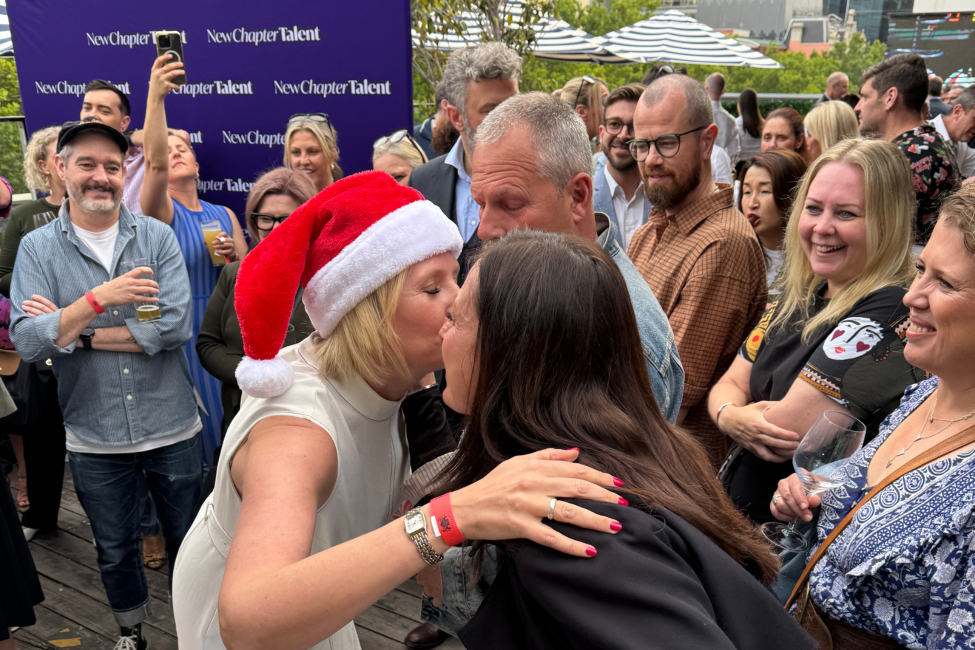Article
Let’s Talk About Soft Skills: The Future of Marketing Careers
Right now, it feels like every marketing conversation starts (and ends) with AI. From automated content creation to predictive analytics, technology is shaping the industry in big ways. But if you’re building a successful marketing career, or even hiring for one, AI isn’t the only piece of the puzzle.
Because here’s the thing: people connect with people, not brands.
In our work in marketing recruitment across Australia and New Zealand, we’ve seen time and again that the candidates who stand out aren’t just technically strong. They bring something extra: the soft skills that help them connect, inspire, and lead.
Why Soft Skills Still Matter in Marketing Jobs
From user-generated content campaigns to high-performing social posts, the marketing that cuts through is the content that feels real. The stuff that solves genuine problems, highlights real benefits, or resonates with daily life.
Often, the “rough-and-ready” content outperforms the perfectly polished. And do you know why? Because it’s built on empathy, creativity, and human connection - soft skills that no AI tool can replace.
Emotional Intelligence: The Real Career Differentiator
When we speak to hiring managers about what makes someone truly successful in a marketing role, the answer often isn’t “their Google Ads skills” or “their ability to write prompts.” It’s their emotional intelligence (EI).
EI is what allows marketers to:
- Create campaigns that
speak to an audience, not just sell.
- Manage client relationships with empathy.
- Navigate stakeholder challenges with confidence.
- Lead teams in a way that inspires collaboration.
In short: EI is still everything - and in today’s competitive market for marketing jobs, it can set you apart from the pack.
Storytelling: A Future-Proof Marketing Skill
Data might tell you what’s happening, but storytelling is what makes people care.
Strong storytelling helps marketers:
- Frame products within real-life benefits.
- Create campaigns that people actually
want to share.
- Build brand trust through authentic narratives.
It’s one of the most future-proof marketing skills because stories never go out of style.
Other Soft Skills That Boost Your Marketing Career
Alongside EI and storytelling, these soft skills regularly come up in conversations we have as part of marketing recruitment:
- Curiosity – Great marketers are lifelong learners.
- Collaboration – Marketing rarely happens in isolation.
- Adaptability – With technology constantly shifting, flexibility is key.
- Critical Thinking – The ability to cut through trends and identify what really drives results.
These are the qualities that hiring managers look for when reviewing candidates for marketing jobs, because they’re harder to teach than technical skills.
Blending Tech and Humanity
AI and automation are powerful tools. But they’re just that: tools. The marketers who thrive are those who blend technical know-how with human skills.
In other words: use AI to streamline, but rely on soft skills to truly differentiate.
Because at the end of the day, the campaigns that win hearts (and wallets) are the ones that feel human.
Whether you’re looking to grow your marketing career or hire top talent, don’t underestimate the power of soft skills. They’re not just “nice to have” - they’re the very thing that makes marketers stand out in a crowded, tech-driven market.
Contact Lucy
Ready to start your next chapter?
Looking for a new role? Explore our current marketing jobs
Hiring top marketing talent? Get in touch
✉️ lucy@newchaptertalent.com.au
📞 +61 416 153 144
𝐍𝐞𝐰 𝐓𝐚𝐥𝐞𝐧𝐭
𝑵𝒆𝒘 𝑺𝒕𝒂𝒓𝒕
𝐍𝐞𝐰 𝐂𝐡𝐚𝐩𝐭𝐞𝐫
Or connect with me ~ Lucy on LinkedIn ~ as I'll share all the insights on recruitment you could ask for! For more updates, career tips, and job opportunities, follow New Chapter Talent on LinkedIn.
New Chapter Talent – Your specialist partner in:
Marketing Jobs | Digital Marketing Jobs | eCommerce Jobs | CRM Jobs | CX Jobs | Product Jobs | Brand Jobs | Creative Jobs | Communications Jobs | Category Jobs | Executive Marketing Roles
share this
Related Articles
Related Articles


STAY UP TO DATE
Get the latest
Receive regular updates from New Chapter Talent.








